Rosemary Taylor AM - mother of a thousand children
People
Rosemary Taylor, the Adelaide woman responsible for evacuating more than 4000 orphans during the Vietnam War, died on New Year’s Eve aged 81. At her insistence, a simple funeral Mass was held at the Holy Spirit Church, Seacombe Gardens, but her life and death has touched people all over the world.
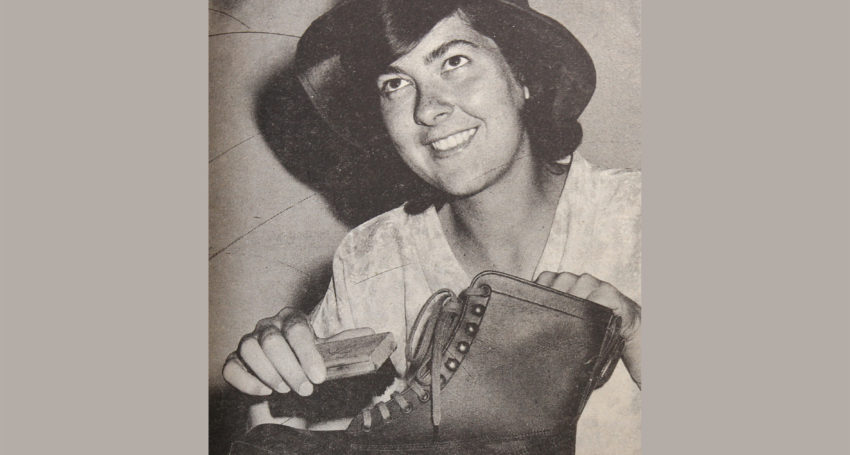
On January 13 1967 The Southern Cross newspaper featured a photograph of Rosemary Taylor, looking full of life and eager to face the unknown challenges ahead.
Rosemary had completed her secondary education at St Aloysius College in 1955 and had joined the Sisters of Mercy immediately after graduation. She undertook studies at the University of Adelaide followed by teaching appointments at St Aloysius College and Mercedes College. She excelled as a dynamic and creative teacher.
By the 1960s Rosemary’s decision to leave the Sisters of Mercy opened up a new chapter in her life. After working as a missionary in Alaska for seven months she returned to Adelaide and in 1967 joined a World Council of Churches aid team to work with women and children living in refugee camps in Vietnam.
This became Rosemary’s lifelong calling. She spent her life working with the poor and underprivileged, initially in Vietnam, then Thailand and Cambodia.
Her strong sense of justice led her to leave her first assignment after she criticised the project director for his colonial attitude such as complaining because “our cook never serves hors d’oeuvres”.
After two months she began working as a volunteer at Phu My, a Catholic refuge for some 1500 adults and children, including the homeless, the destitute, the incurably ill, and the dying. A small room at Phu My was Rosemary’s home for the next eight years.
From this base she developed primarily a ‘salvage operation’ aimed at saving the lives of as many abandoned children as possible and sending them to the safety of adoptive homes outside of Vietnam.
As well as setting up nurseries in large rented houses, Rosemary and her staff arranged the overseas adoption of nearly all Vietnamese children during this period. One of the American volunteers, writing home in 1974, commented: ‘Rosemary’s task is enormous, overwhelmingly complex, completely impossible and never-ending. Her spirit is remarkable, her methods courageous, breathtaking, hazardous and dictatorial. Navigating a complex maze of channels of operation totally dependent on Rosemary’s leadership; simple, forthright, autocratic and totally altruistic.’
In 1973 the program, which by then had expanded to include five nurseries, was registered as Friends for All Children (FFAC).
As the political situation in Vietnam deteriorated during the early months of 1975, Rosemary saw the inevitability of the fall of Saigon. On April 4 a call came from USAID in Vietnam, notifying FFAC that the USA had authorised transportation for 230 children to go to America. Assurance was given that the C-5A aircraft had seats, seatbelts, oxygen and emergency evacuation equipment.
Rosemary and Margaret Moses, her close friend from school days at St Aloysius College, who had also spent some years as a Sister of Mercy with Rosemary, discussed the plan and agreed to accept the offer.
Tragically, the C-5A crashed within minutes of take-off. A total of 78 children died and ten were hospitalised. Seven of the eight staff who accompanied the children died, including Margaret Moses and Lee Maak, a nurse from Adelaide. Despite the crash, for which Lockheed eventually accepted liability, Rosemary and her team continued to help evacuate almost 1500 children that same weekend. But the aftermath left them with tremendous problems that would last for many years.
On April 29 1975 Rosemary, Sr Doreen Beckett RSM and Ilse Ewald climbed over the high walls of the US Embassy and went to the rooftop where they were evacuated by helicopter to a refugee ship.
After a week in cramped conditions with rationed food and water, she and Doreen flew to Colarado to finalise the adoptions of the latest arrivals.
On Australia Day 1976 the Australian Government recognised Rosemary’s work with the decoration of AM (Member of the Order of Australia).
Her care for abandoned children did not end with the closure of the homes in Vietnam. There was work with Kampuchean refugees in Thailand, followed by the opening of a facility for teaching the disabled and for training teachers and caretakers of the disabled in Phnom Penh with the resettlement of refugees in Cambodia.
After her death on New Year’s Eve, a former volunteer posted the following message: ‘Since hearing late last night that dear Rosemary is no longer with us in the flesh, I am grieving. As one of my military friends remarked when I shared the news: If ever there was a candidate for sainthood, here it is…Whether or not that transpires officially, I know from God that she is numbered among the saints already.’
This sentiment was echoed by Fr Rob Egar at her funeral Mass who suggested the Plenary Council might kick off her cause for canonisation.
Author Ian Shaw, who interviewed Rosemary for his book Operation Babylift, described Rosemary as ‘almost literally, the mother of a thousand children’.
Rosemary was a profound thinker, a woman of deep faith and a person who met the needs of her time and was loved and admired by her family, friends and colleagues across the world. She will always hold a special place in the hearts of the Sisters of Mercy, Adelaide.
She is survived by her brothers Fr Brian Taylor MSC and Robert.
Compiled by Judith Redden RSM with additional information sourced from Operation Babylift by Ian W Shaw, Orphans of War and Turn My Eyes Away by
Rosemary Taylor.


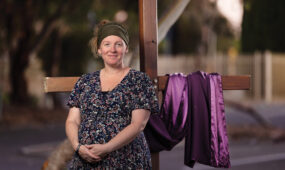
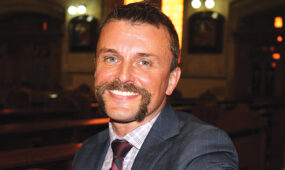
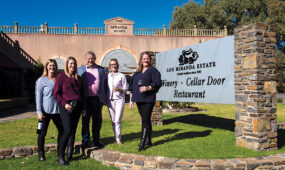
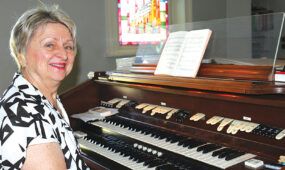

Comments
Show comments Hide comments